Part Two in our series of conversations with women who are helping to shine a spotlight on habitat, access, and funding issues that impact hunting and fishing
Perhaps one of the best things to come out of recent threats to public lands has been a new kind of alliance between hunters, anglers, and other people who enjoy the outdoors, like skiers, hikers, bikers, climbers, and paddlers. Lindsey Elliott considers herself originally from this second group, but as an enthusiastic newcomer to hunting—she went on her first big game hunt last year—she’s become a very willing ambassador for our sports, especially with devotees of her business Wylder Goods, a built-by-women-for-women outdoor gear retailer she co-founded with her friend Jainee Dial in April 2016.
We talked to Lindsey about how she got interested in hunting—it involves her collecting roadkill, more on that later—and why she believes in weaving conservation stories into the marketing of a business that relies on the outdoors.
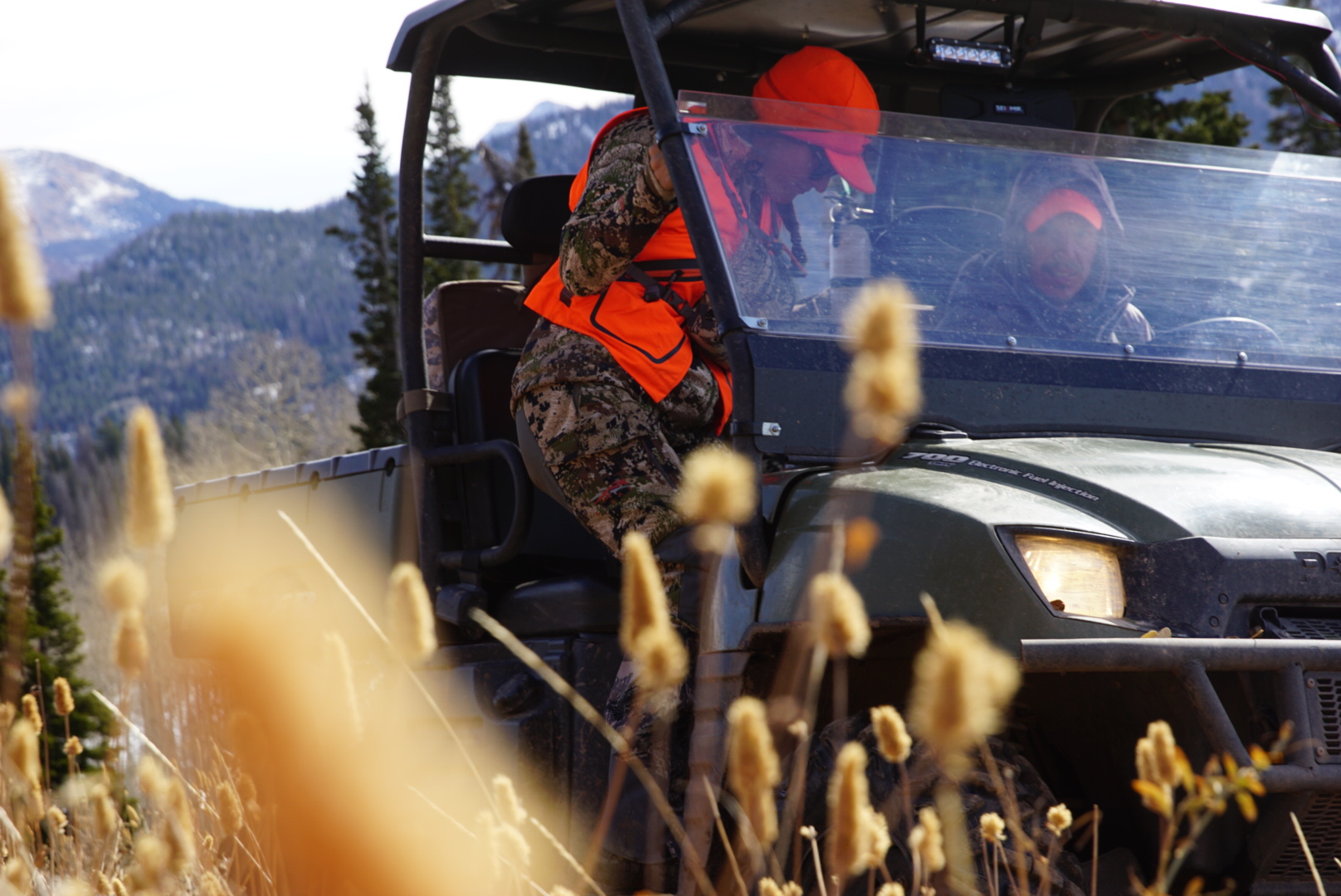
TRCP: We first got to know you at the Outdoor Retailer show this summer, where you were on a panel about hunting and public lands with our president and CEO Whit Fosburgh. He said you had a really unique journey to discovering your love of hunting—can you share it with us?
ELLIOTT: Yeah, I was sort of the token beginner hunter on that panel, which was great because it’s such an interesting time to be joining the hunting community—there’s this bipartisan wave of support for public lands, and meanwhile women are increasingly getting into hunting as the overall number of hunters is declining. It’s part of why I’m motivated to share my story.
I don’t come from a hook-and-bullet background. I mean, I fished as a kid and I’ve gotten into flyfishing as an adult, but I don’t have any family members who hunt. I’d really never fired a high-powered rifle until last year.
I used to work in environmental education, and we’d show the kids things like primitive skills and basic firemaking. One day I found a dead fox on the side of the road—it had this really beautiful coat and it wasn’t mangled or anything, so I had an expert help me use it for a skinning demonstration. She did about half the job and talked me through the rest, and it ended up being this really incredible experience for me where I sort of felt like I was out of my body watching my hands move as if they knew where to go. I realized it didn’t matter whether I thought I could or couldn’t do it—it was biologically engrained in me.
That sort of lit a spark, and for the next eight years or so I just wanted more and more experiences like that. I got a collection permit to use other critters to teach my students, whether it was about feather design or what scavengers eat. I learned how to tan hides (not very well, because it’s super hard), and I just became the person everyone called when they had dead animals! I was like the roadkill queen of my community, which was pretty funny.
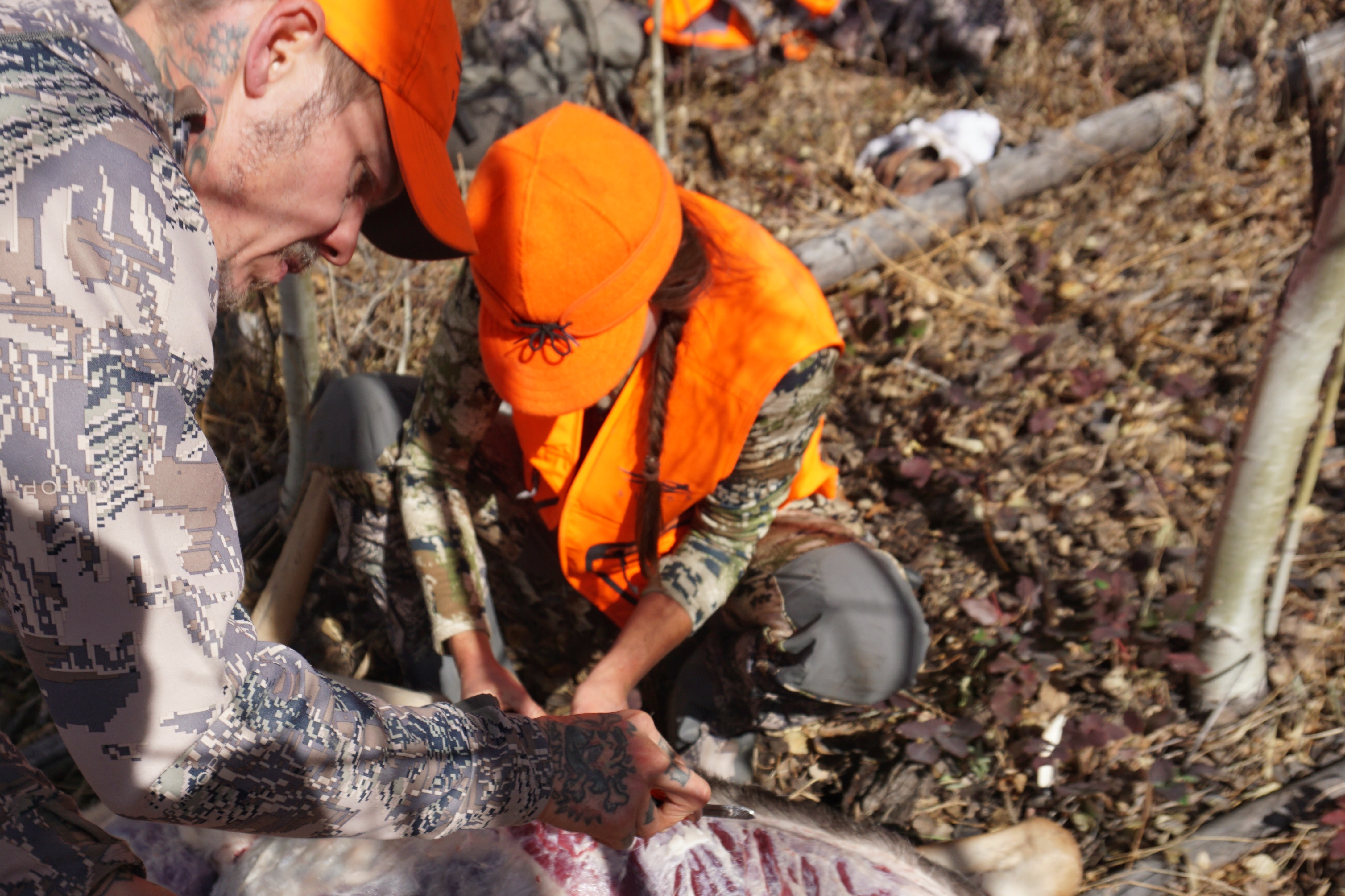
Then I moved to Utah, and one of my friends here has been hunting for 25 years. His walls are covered in beautiful taxidermy mounts and skulls, and we’d eat these wonderful meals with wild game and I’d ask him about the stories behind all of it. He finally asked if I wanted to come along on a hunt and see for myself, so I got an apprentice hunter license.
I thought I’d just shadow him for the season, but then I got a tag and started training with a rifle, and since I wasn’t half bad it seemed like I could really go for it. Everything just kept lining up. By early fall, I’d spent about eight months reading a lot about hunting and sort of testing the conversation in my peer group, just exploring the idea. But now I really wanted to do this! I sincerely hoped I’d get the opportunity to shoot a deer—and I did.
It was a beautiful process, and one that I immediately felt aligned with. Since then, cooking that meat for friends has even deepened the spirituality of the experience. I was sure I’d know in an instant if hunting was going to be for me, and every part of my first hunt just confirmed that this is something I’m going to pursue for the rest of my life.
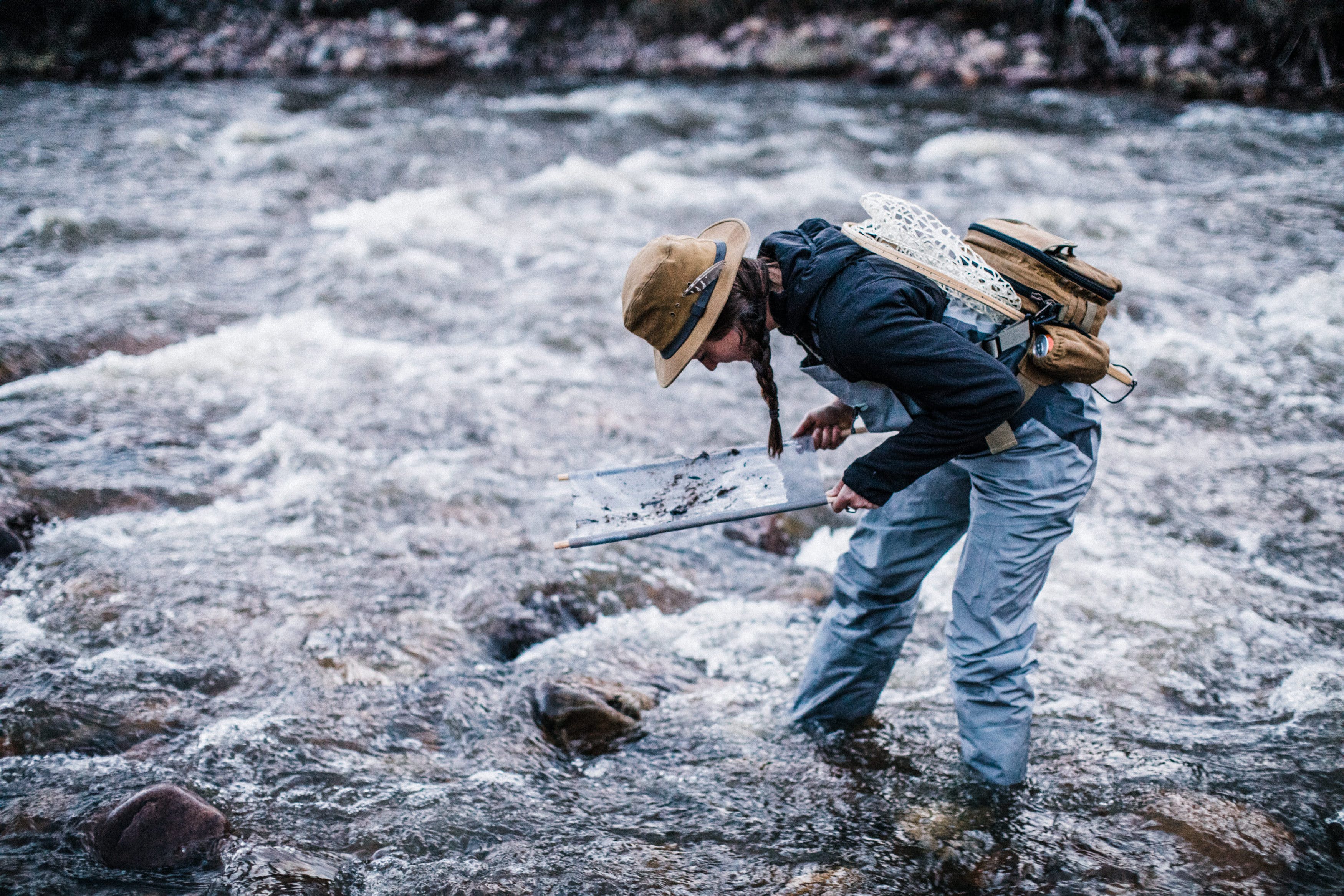
TRCP: You made a great point about this being a very big moment for public lands and maybe an opportunity for some non-traditional partnerships around conservation. But do you think that women who hunt are accepted by your customers who are adventure athletes? Is that a dated stereotype that there is mistrust between the two groups?
ELLIOTT: Coming from the climbing and biking side, I’ll say that it felt like a big risk a year ago to step out and start talking about hunting on the Wylder platform, because it can be such a divisive topic. But I have been so surprised at how interested outdoorswomen have been in my process and the stories that I’m sharing. Every time that I bring it up on social media, I get responses from a handful of women who say Thank you for sharing this, or I really want to get into this someday, or I just asked my dad if he would take me hunting for the first time. So, I do notice that there’s more genuine interest than I thought there was in a group where I was pretty concerned about broaching the conversation. That’s exciting.
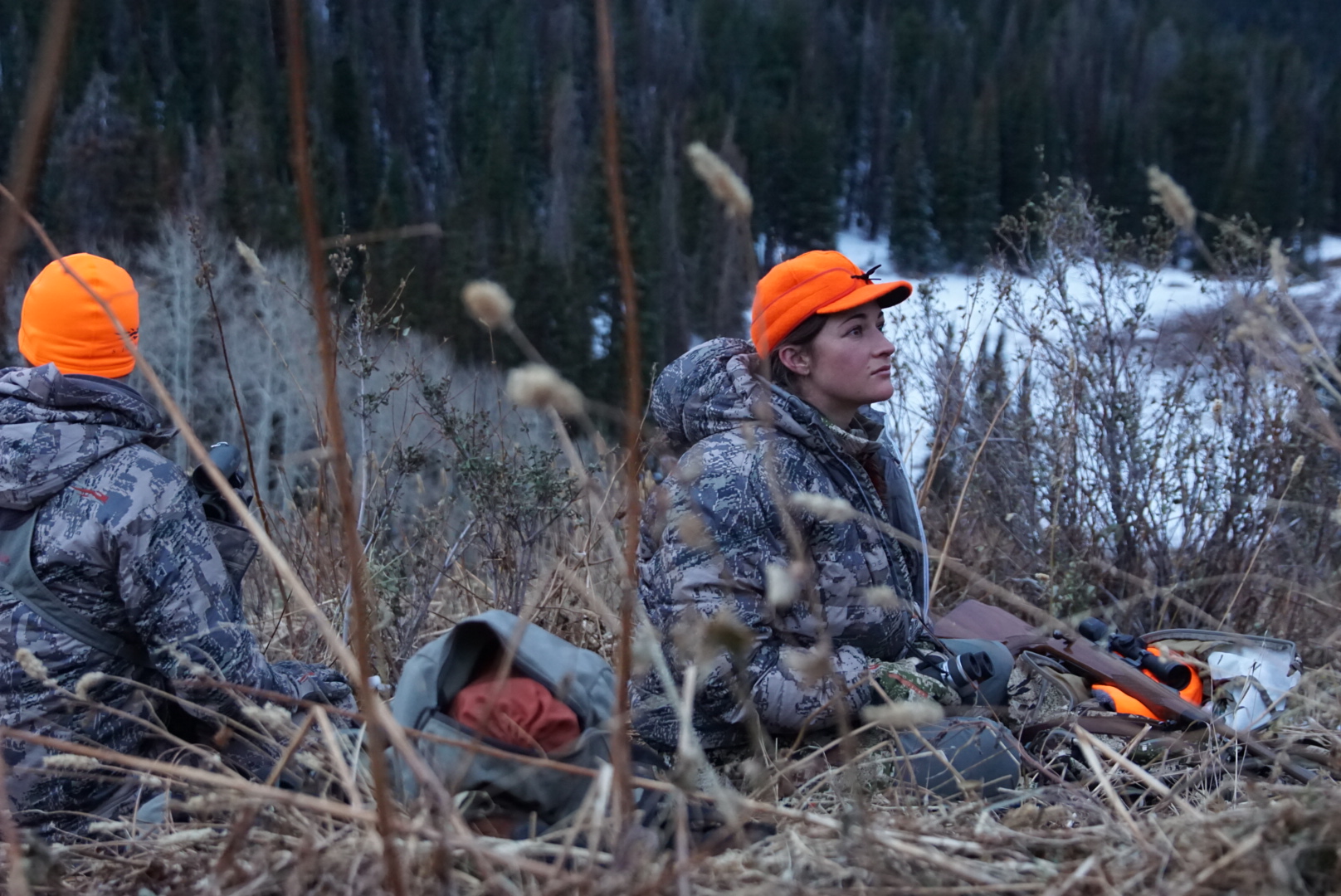
TRCP: You created Wylder because you saw a need to better serve women interested in outdoor gear made for them. Do you think the industry is evolving, and where do you think other women have an opportunity to help make a change?
ELLIOTT: The hunting industry does seem to be turning a corner, even in the short amount of time I’ve been paying attention, especially with Sitka’s women’s line coming out and there being more of an accurate representation of women in hunting magazines and videos.
Where I’m personally motivated is changing the style of storytelling, and I think that women should be a part of that: Let’s tell more complex, emotional stories about hunting, because there’s so much more to it than what a grip-and-grin photo shows you. You have this incredible moment of fear and anguish—I mean, I was buckling at the knees just watching from afar as my deer collapsed to the ground—and of course there’s a moment of relief that you finally got there, and you can eventually smile at some point for a photo. But I think a lot of that gets left out, and it could shift the public perception of what it means to be a hunter.
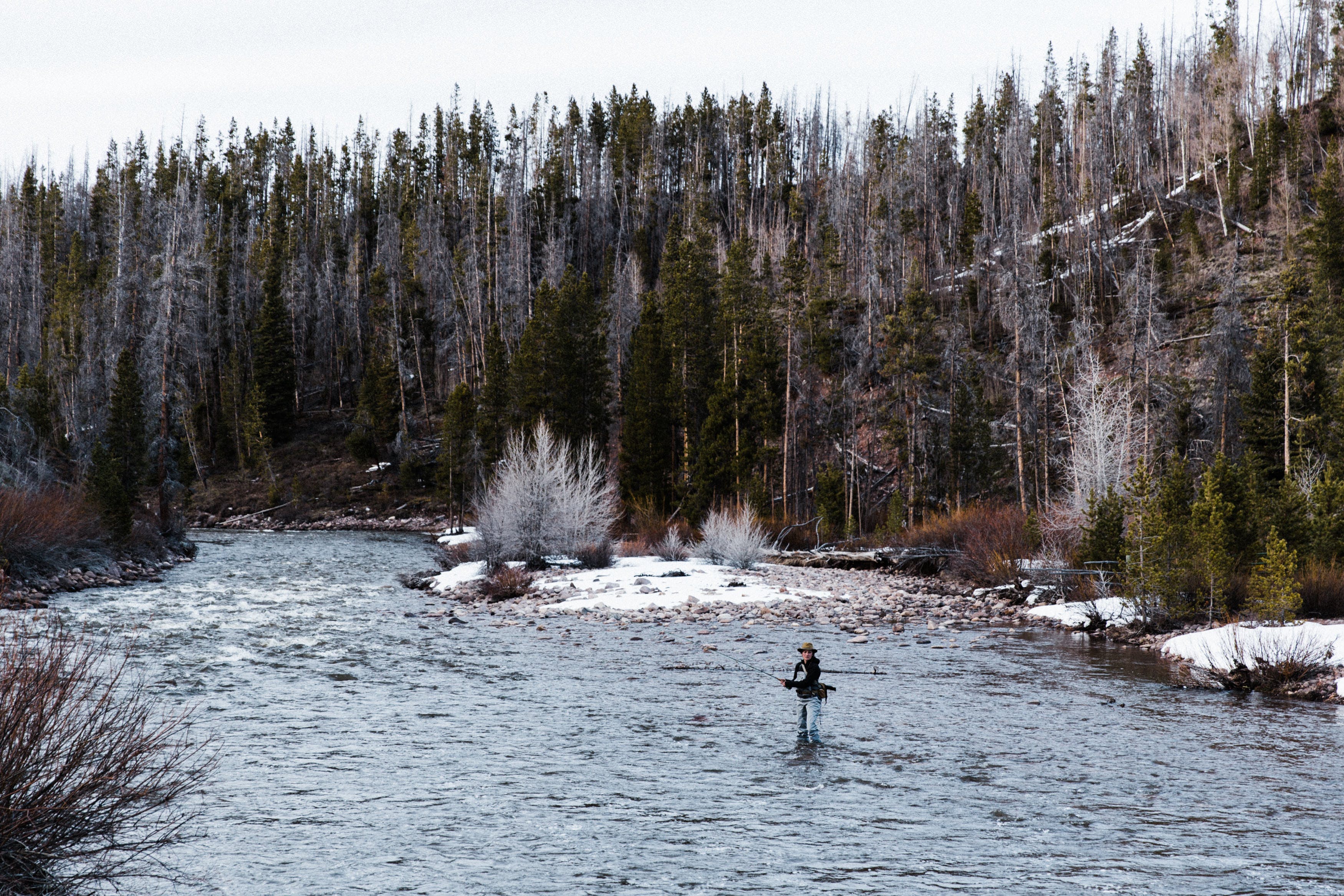
TRCP: Wylder is a certified B Corp, a for-profit company that uses the power of business as a force for good. Why is that important to you?
ELLIOTT: For us, it was part of the original conception of Wylder and really the only way we saw ourselves getting involved in business in the first place. We partner with four non-profits, donate two percent of our sales profit to them, and dedicate a quarter of our marketing to their calls to action and campaigns. Part of our goal is infusing learning and advocacy into the narrative of our online community so people feel less like visitors to wild places and more like part of the ecosystem. When I first learned about B Corps, it just struck me that we could start a business in a place where we are personally connected, where there’s a need in the market, and we can use it as the engine for driving attention toward the good work that we want to see happen in the world. It has been the biggest surprise in my career to end up doing what I’m doing.
Follow Lindsey at @lindenroams, @wyldergoods, and on the Wylder blog. If you know an amazing, inspiring sportswoman with a passion for conservation, tag us on social media and share her story. We’d love to feature more fierce females like this.

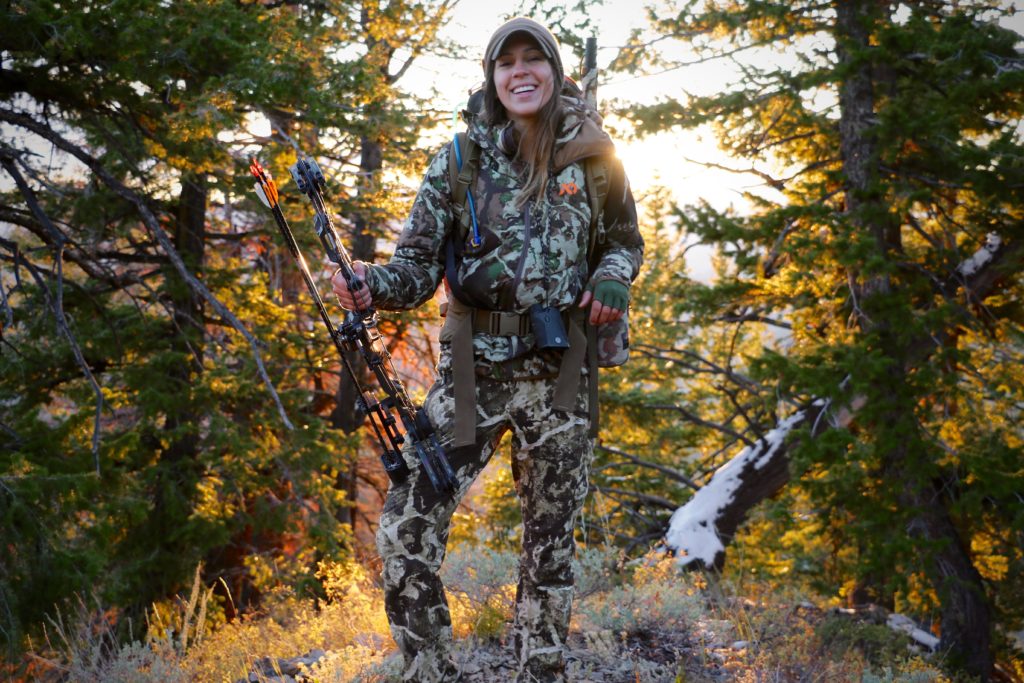
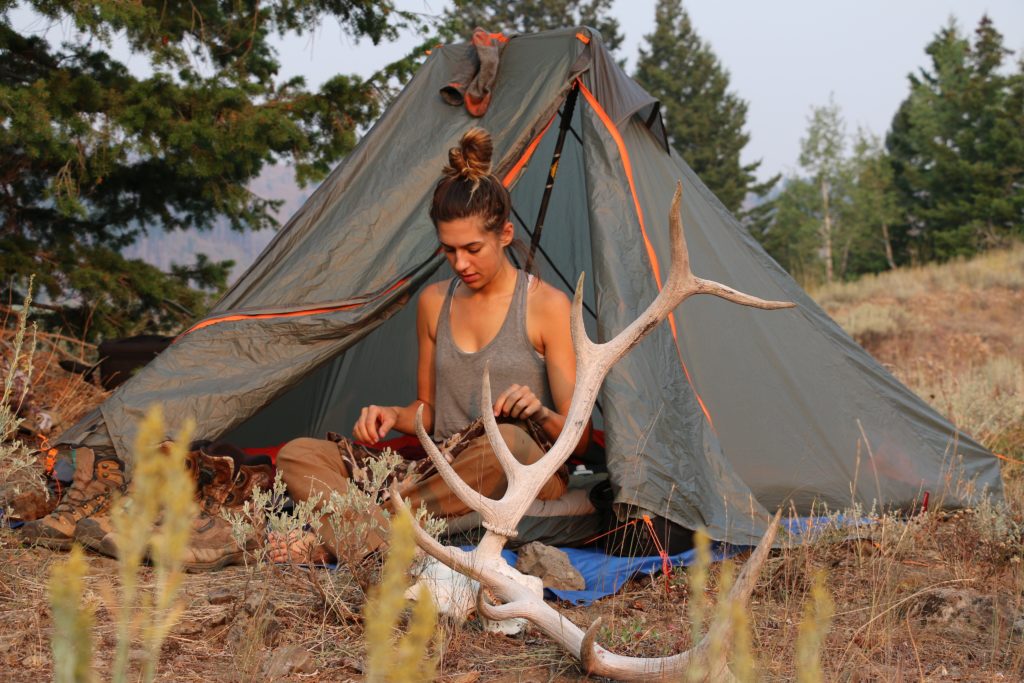
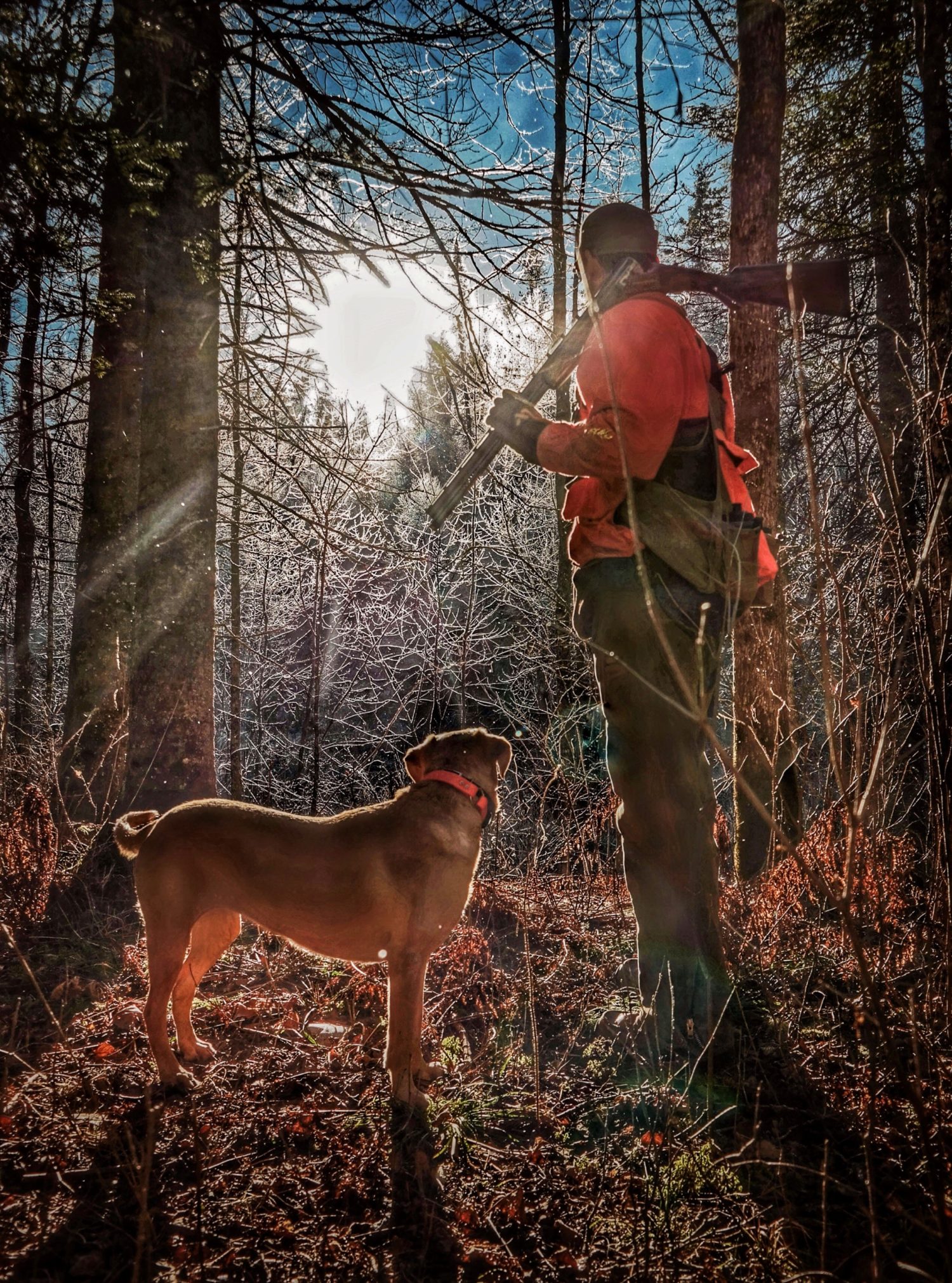
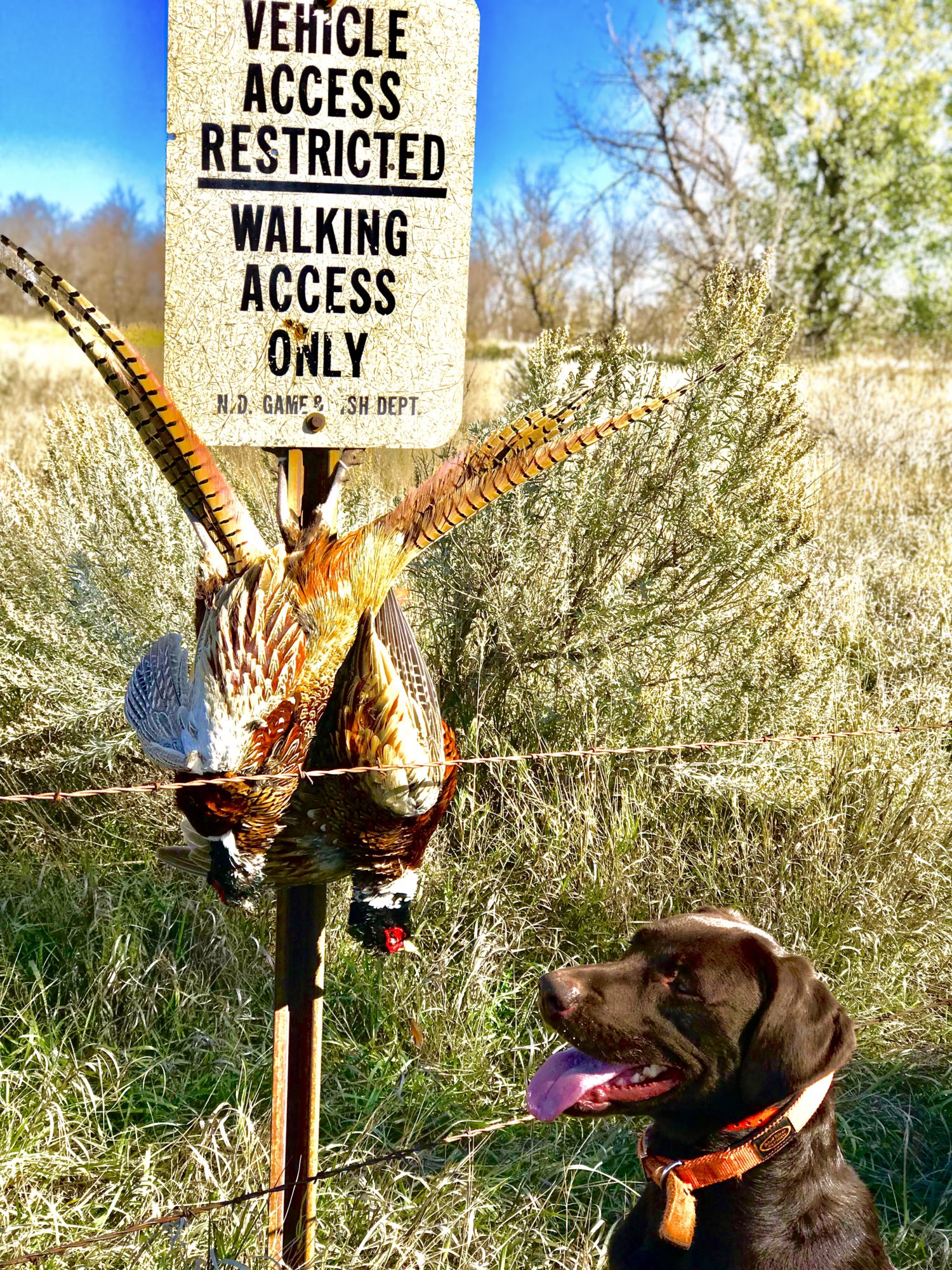
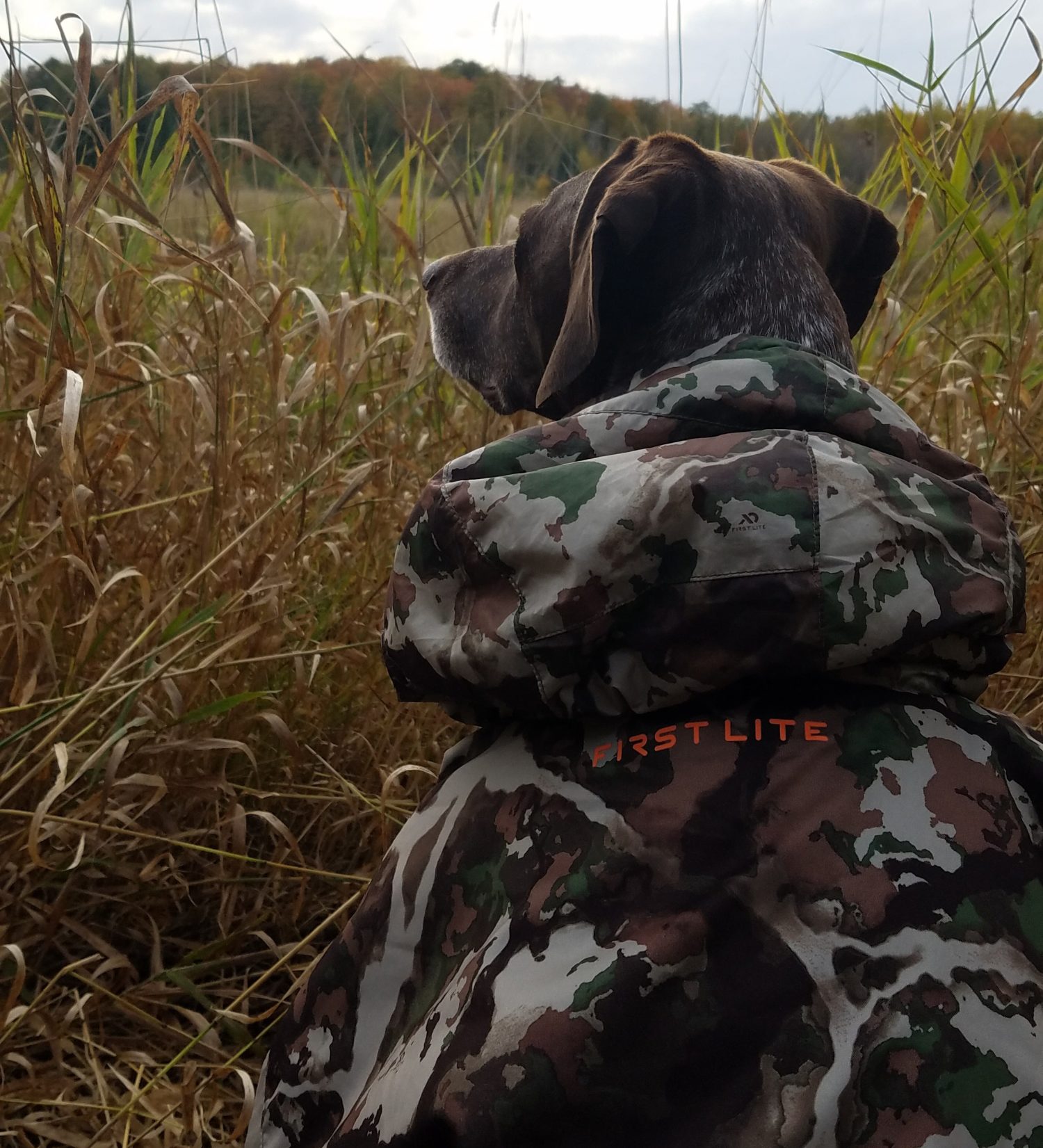
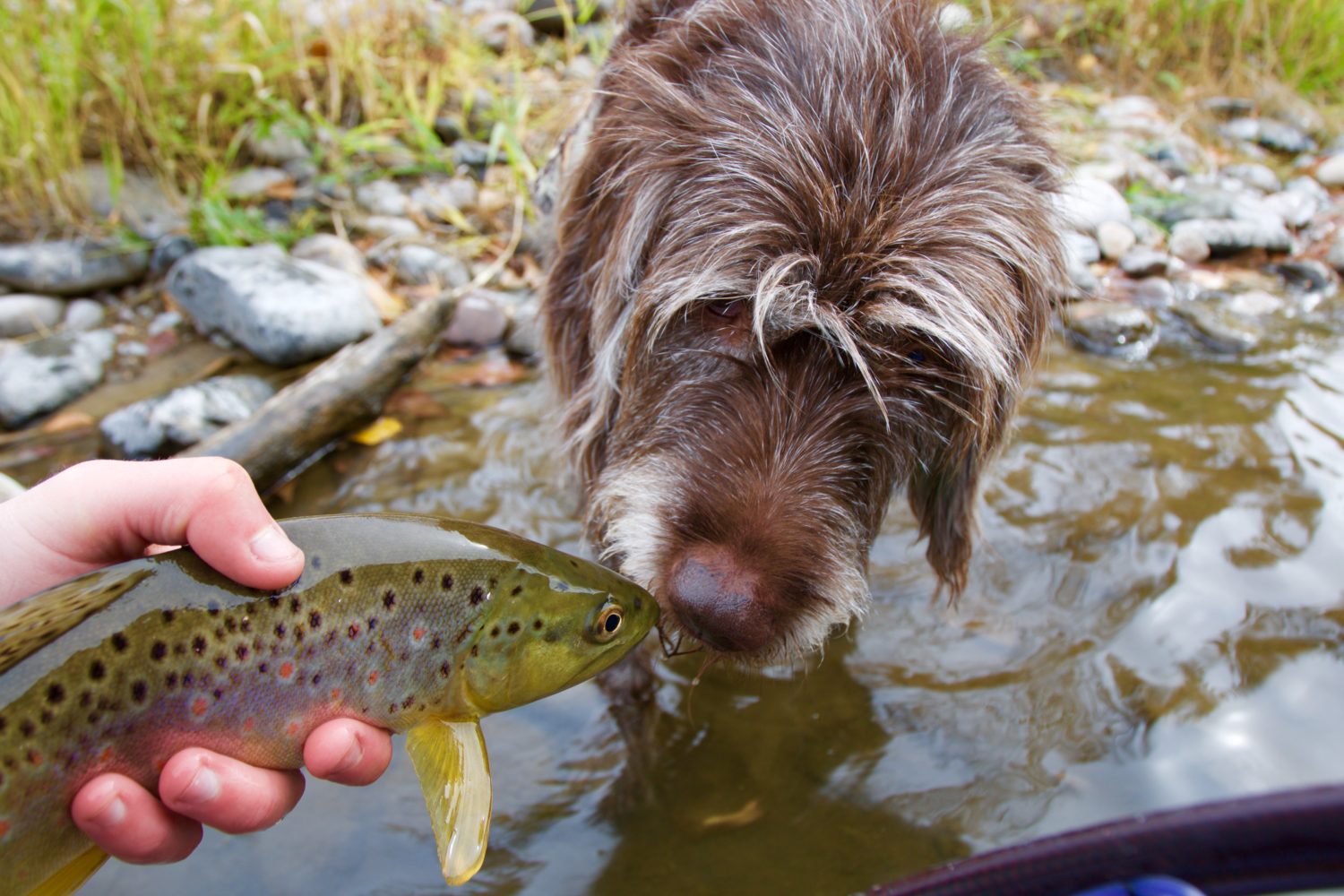
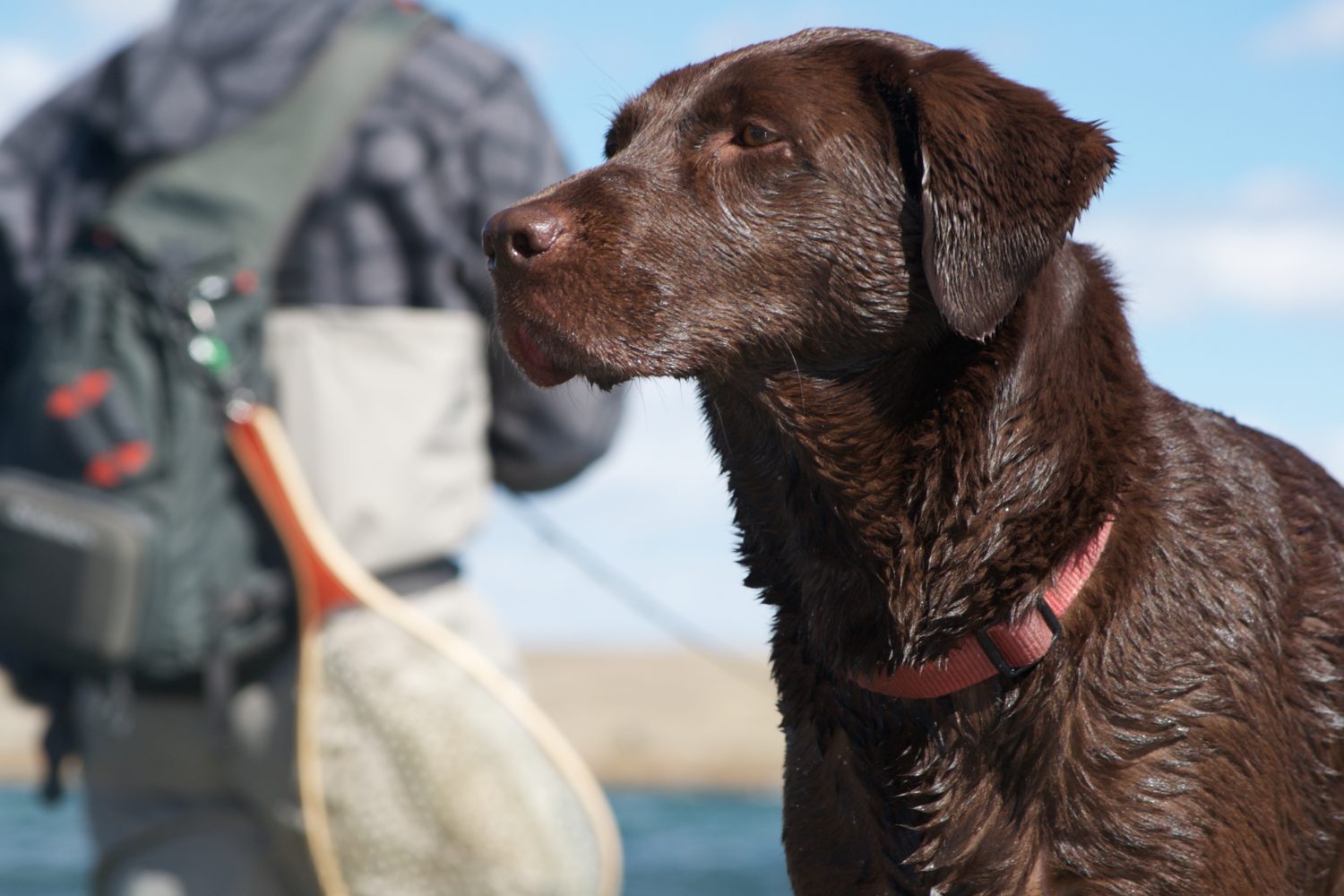
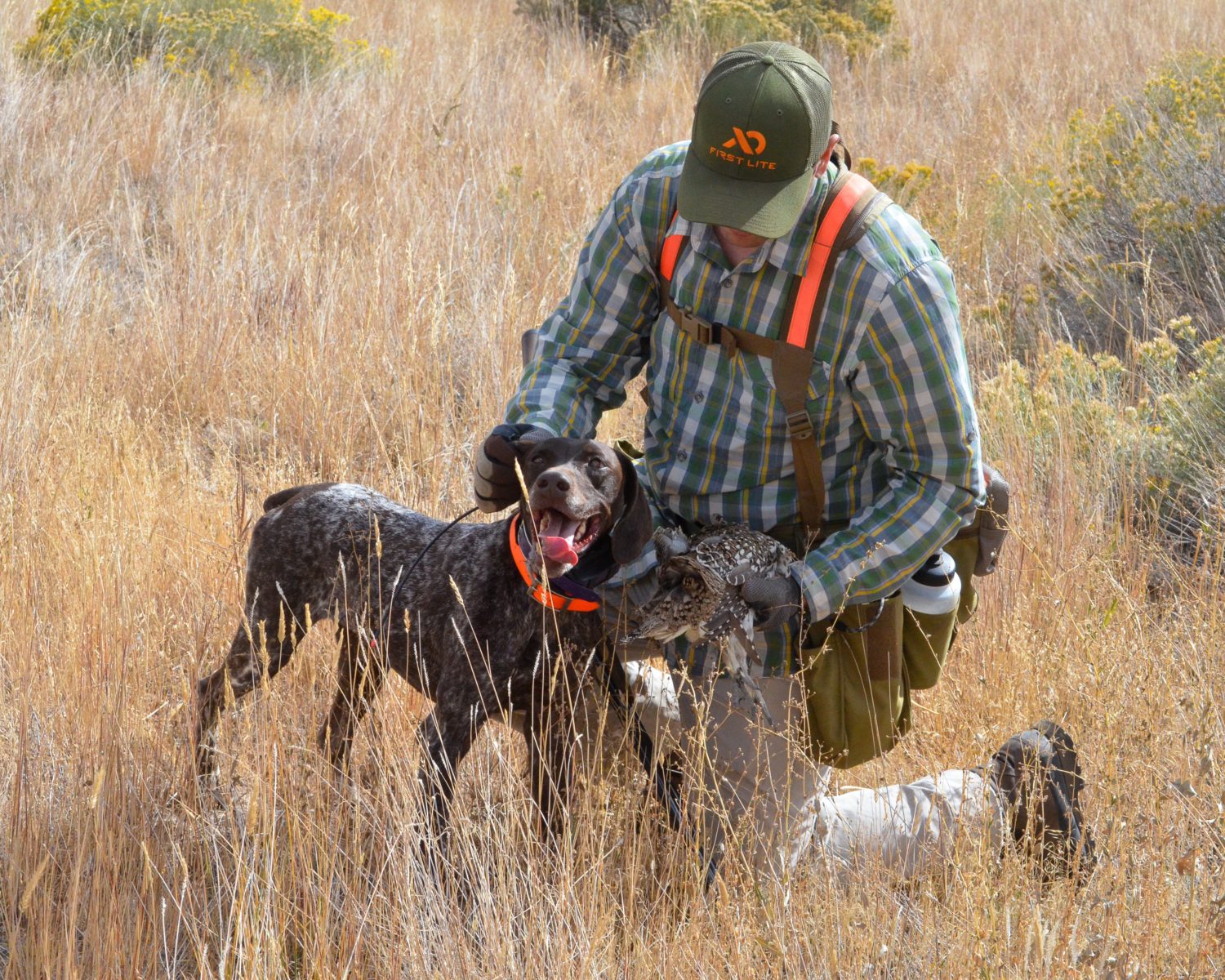
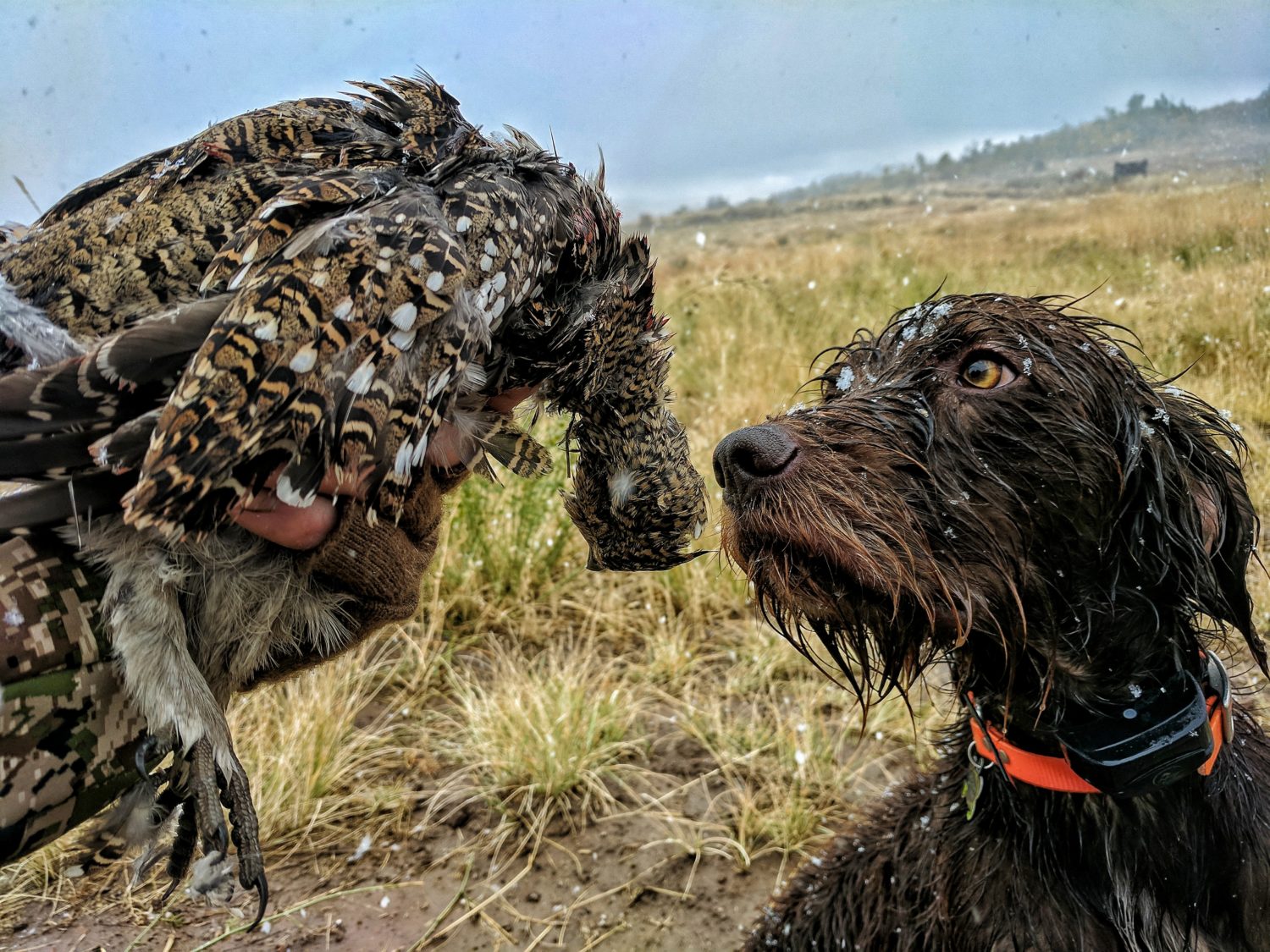
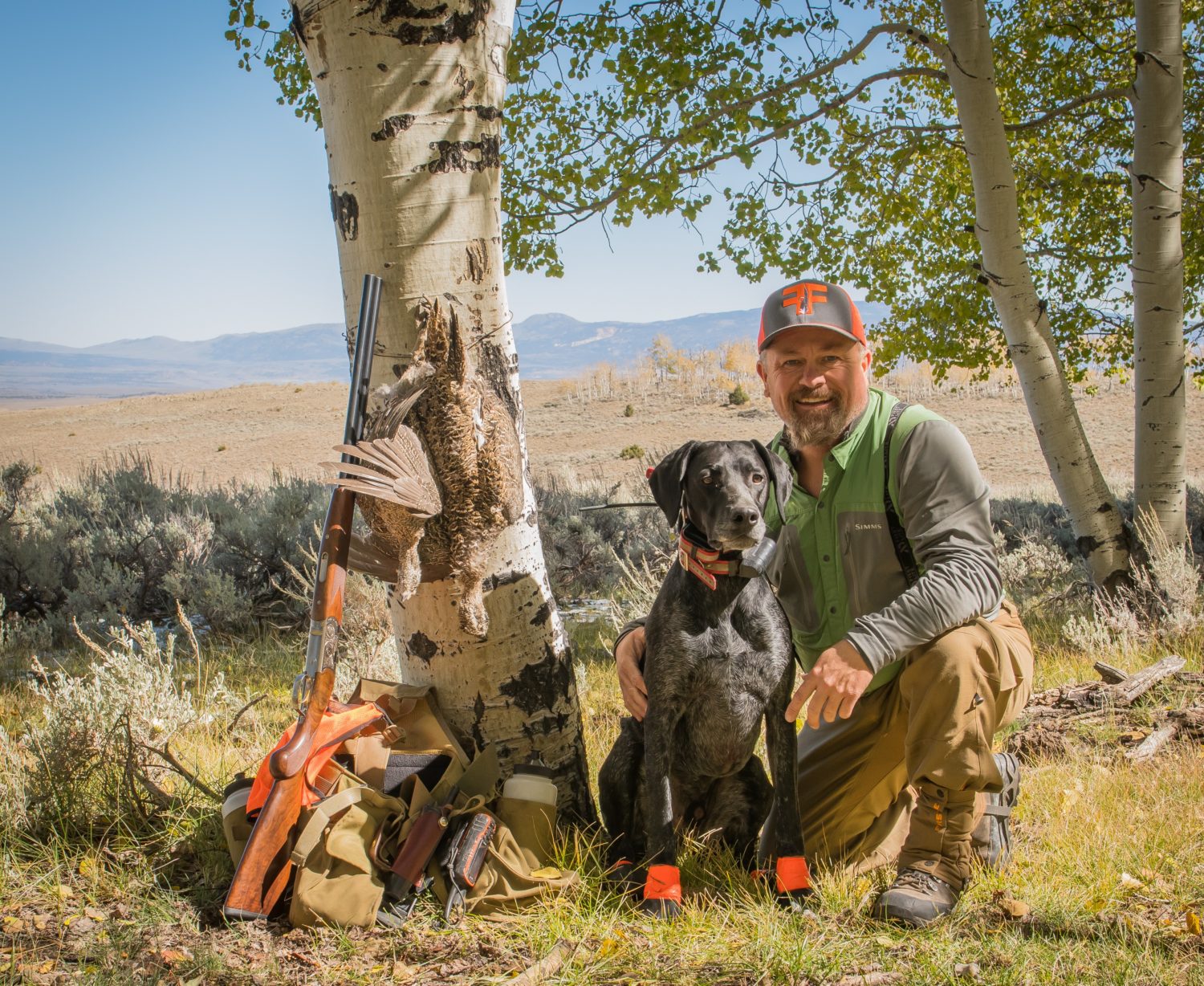
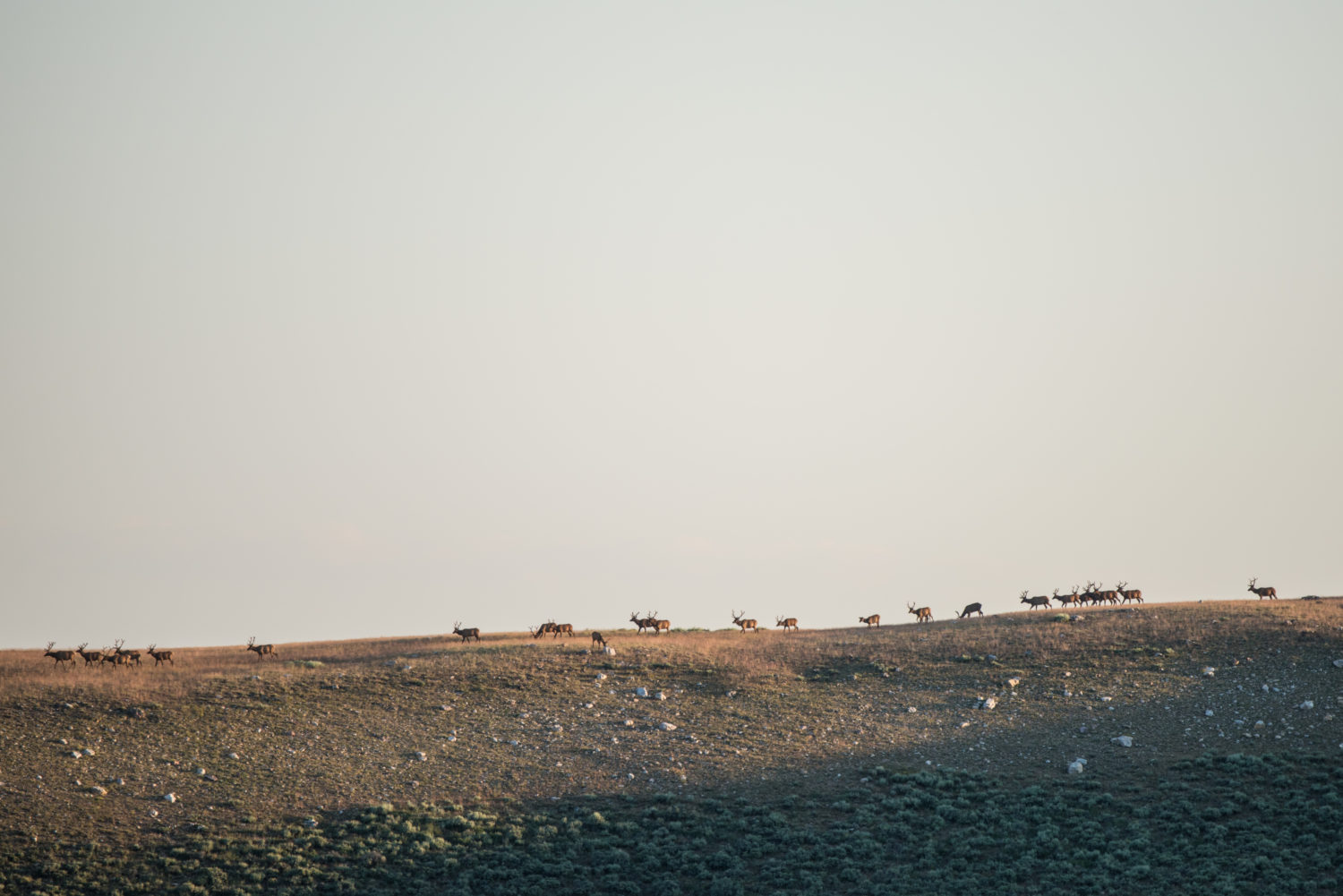
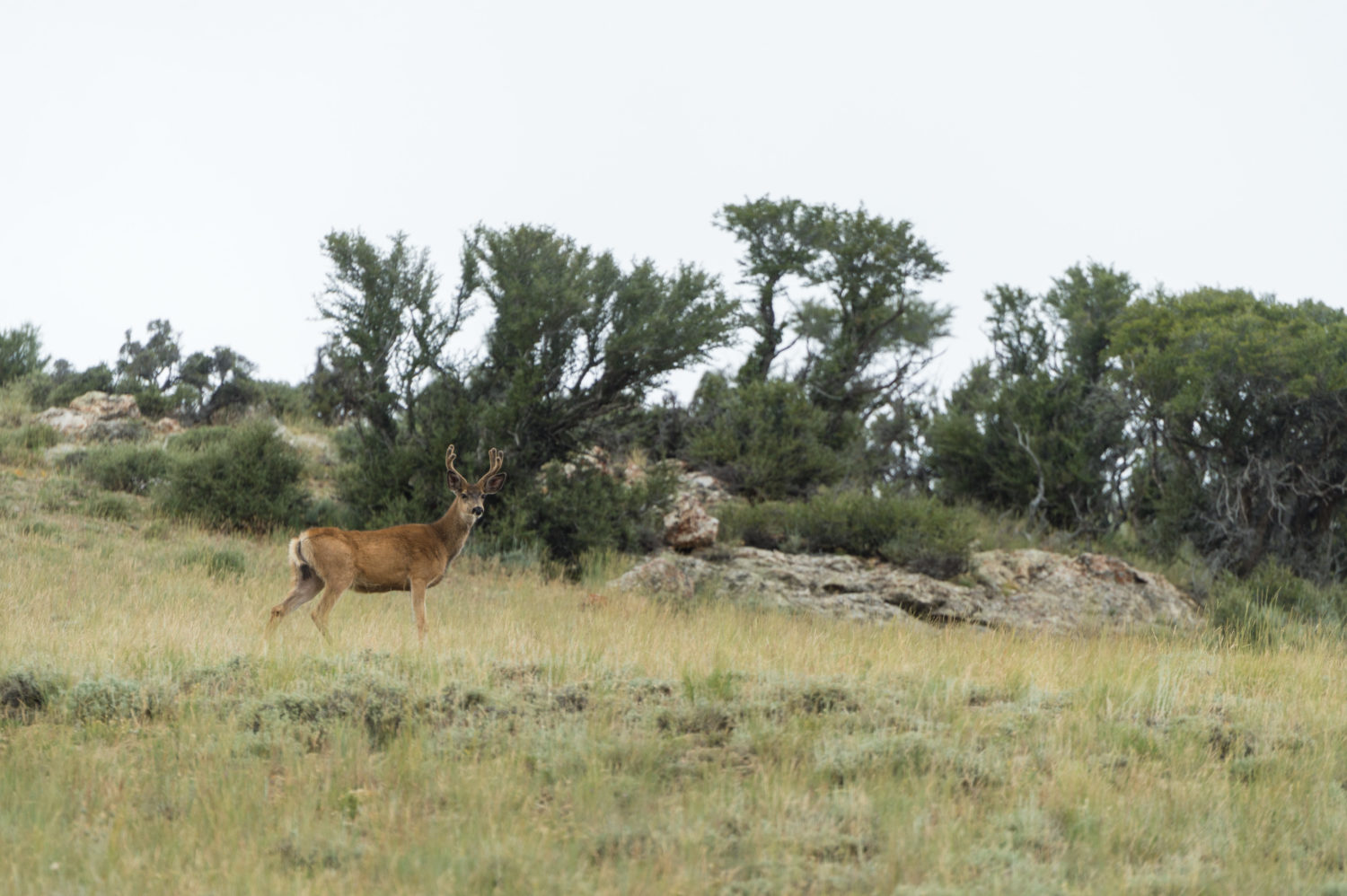
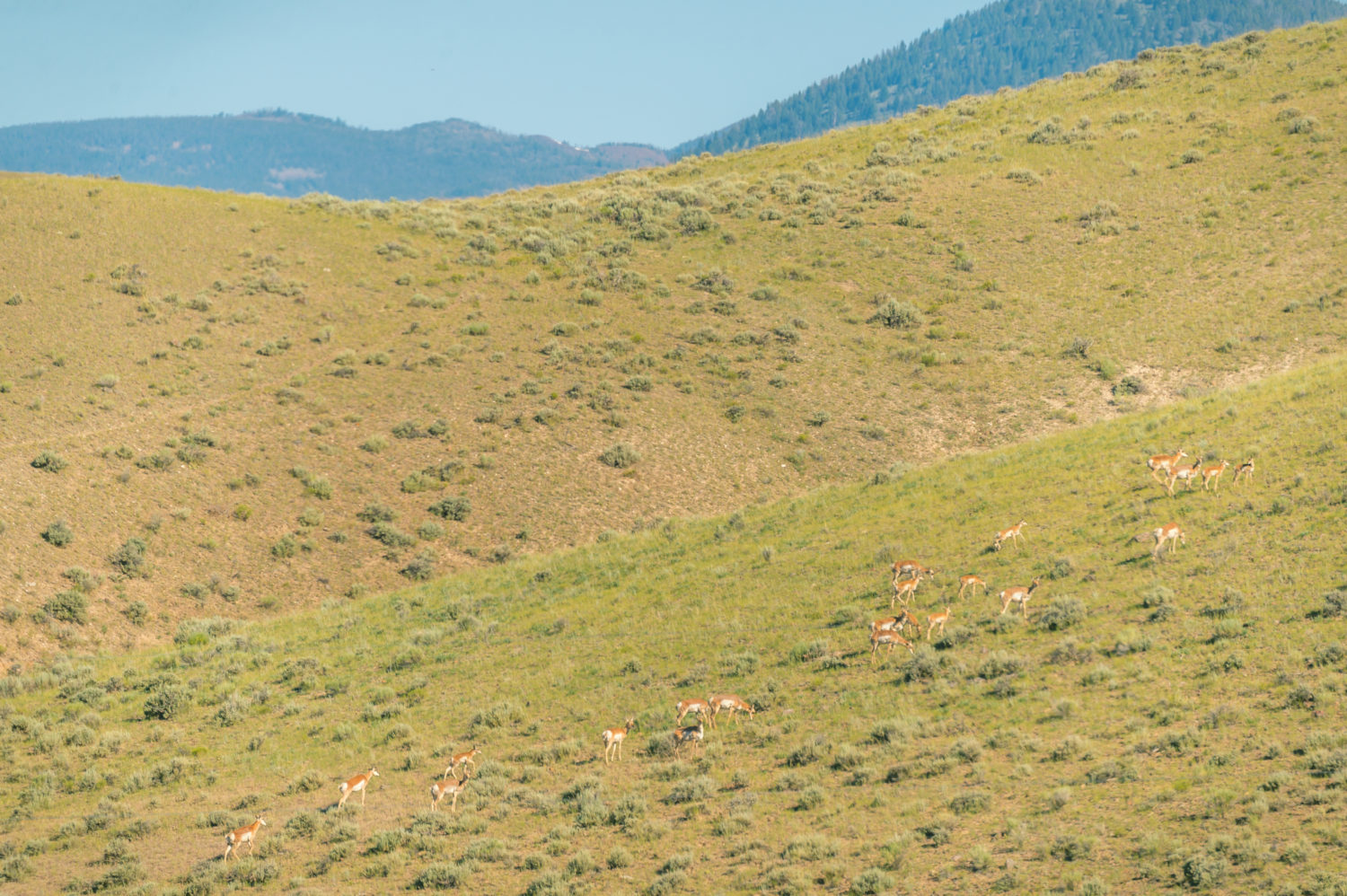
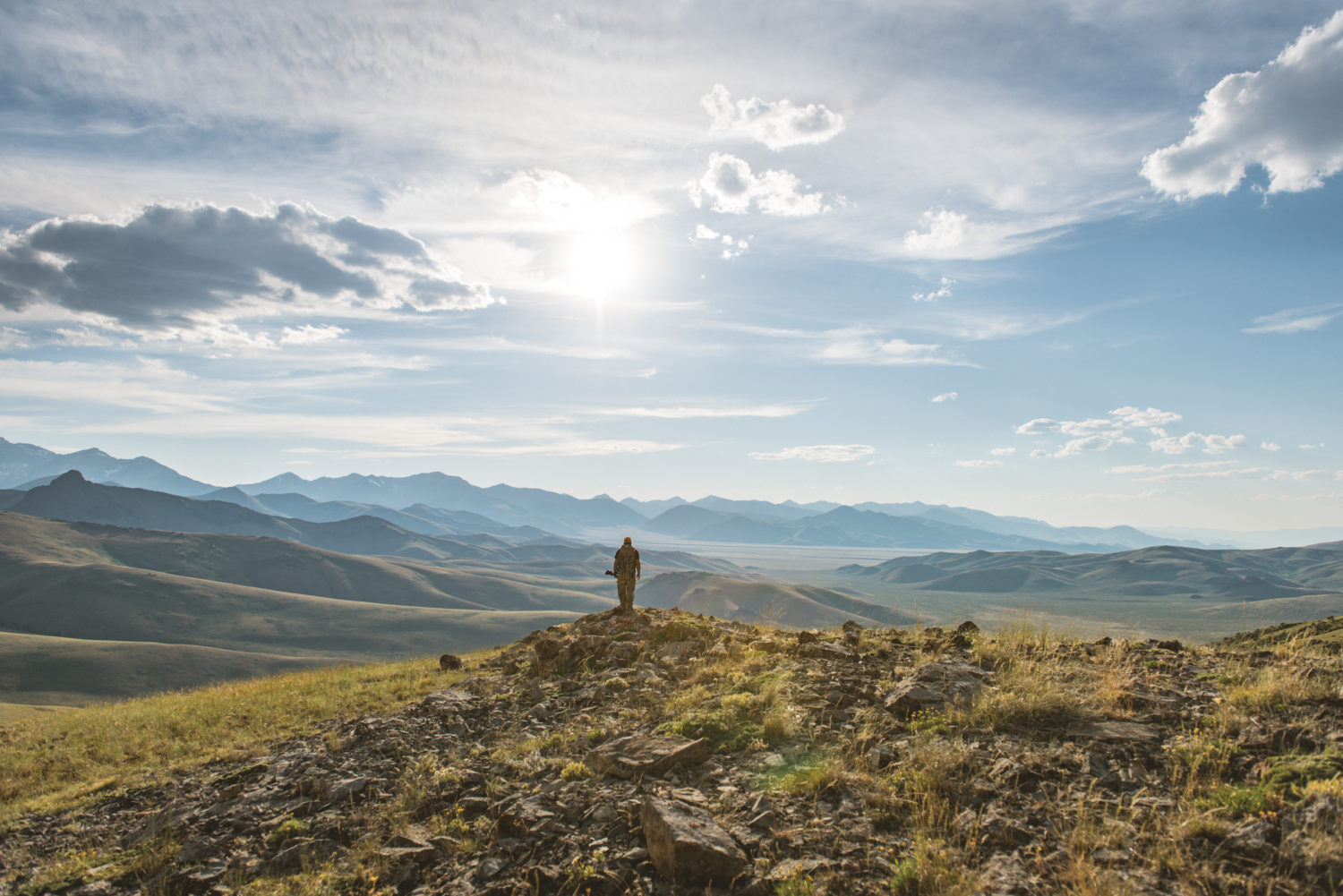
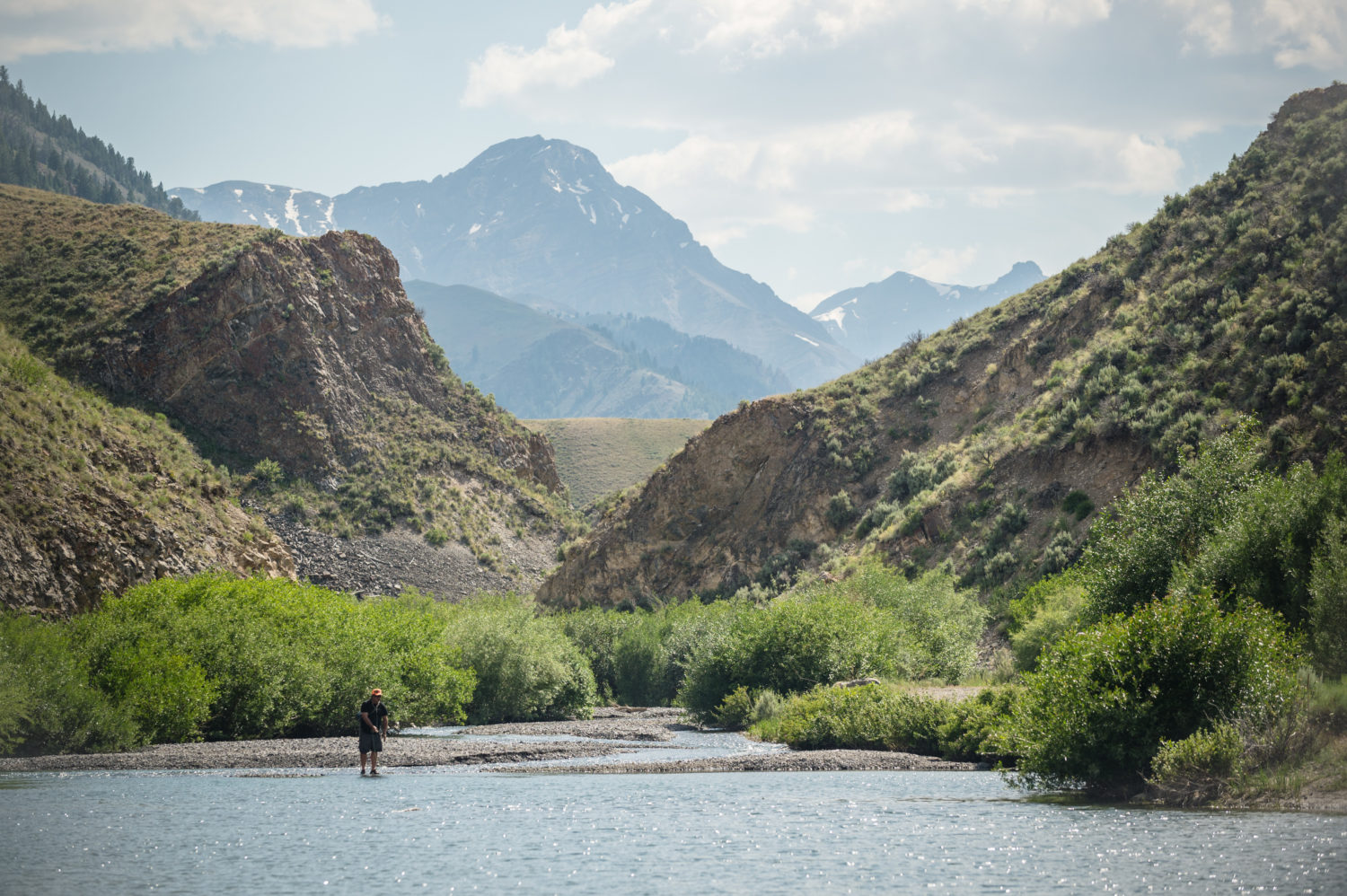
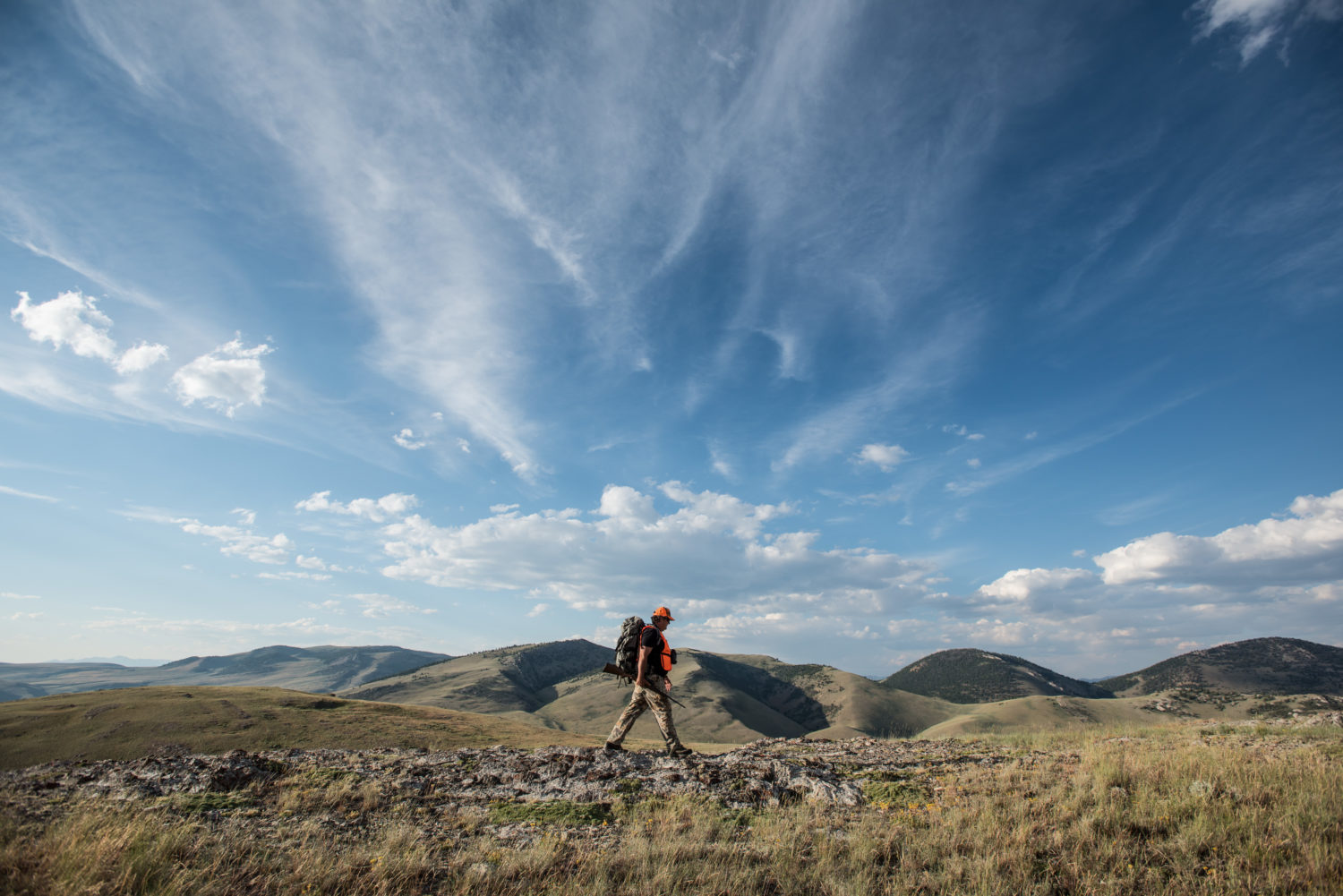
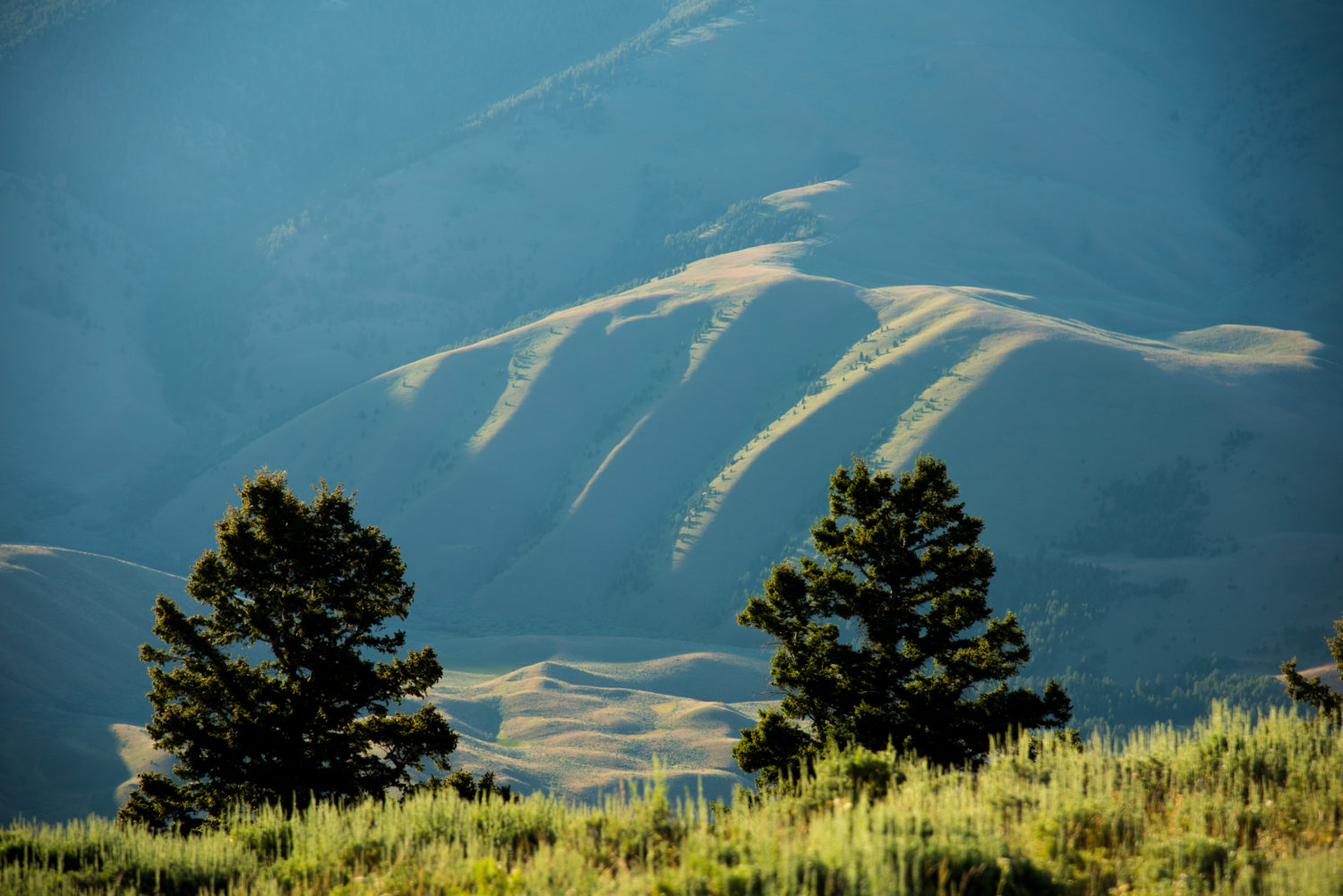
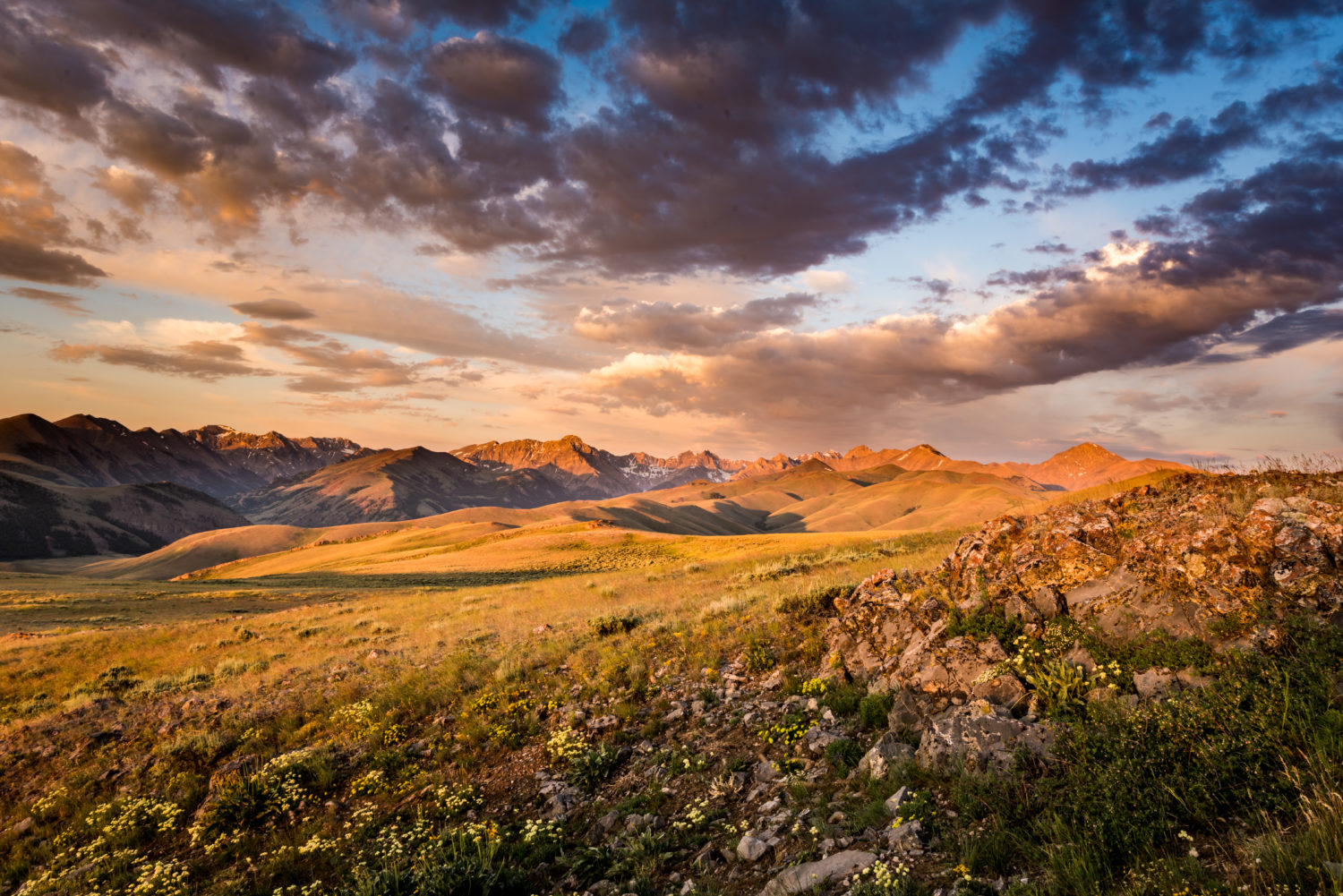
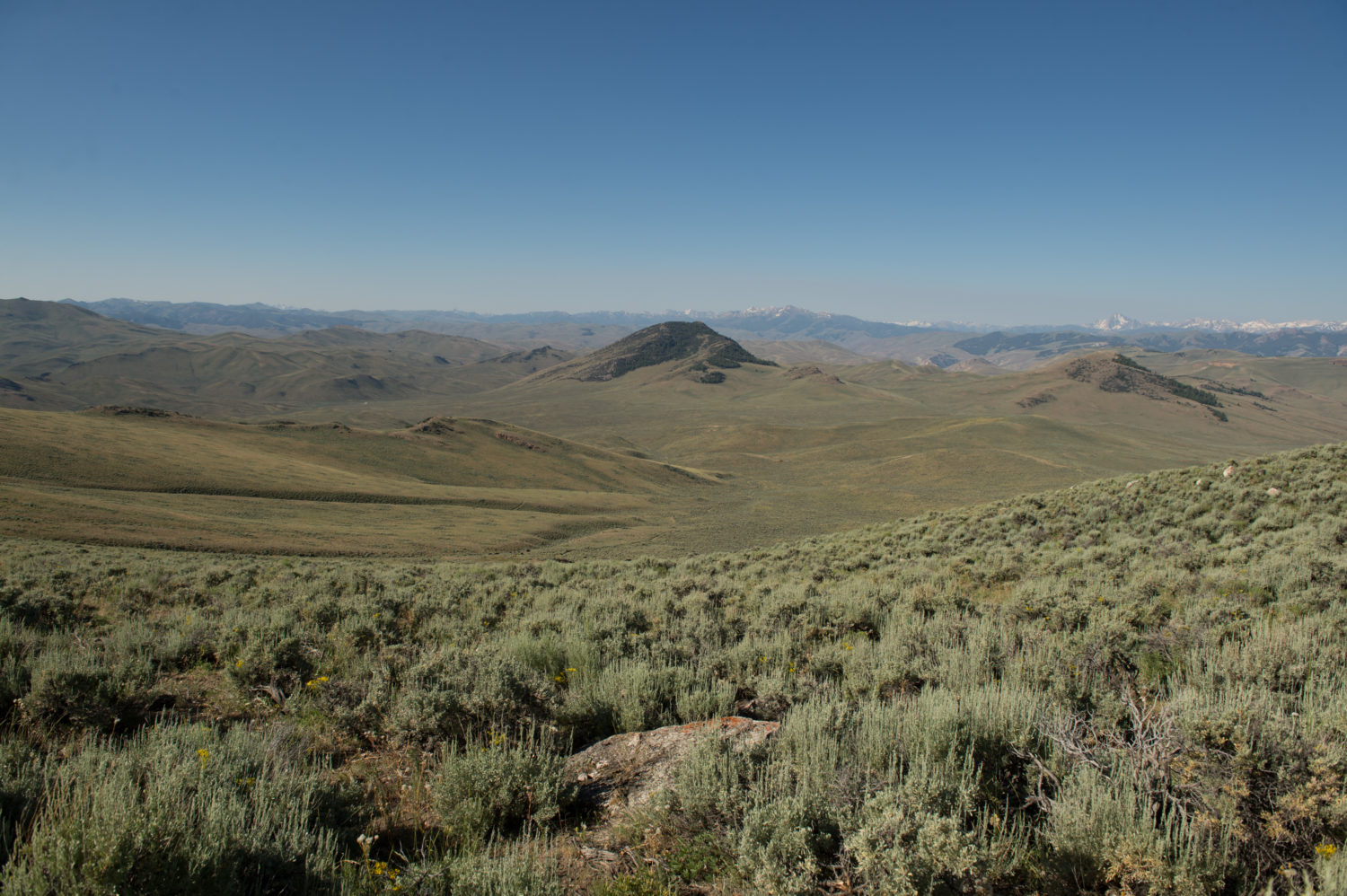




Hi Lindsey; Thanks very much for your excellent efforts on behalf of conservation, wildlife management, environmental education and fisheries science. Believe it or not, I have worked in all of the above fields for almost 50 years. I am a “true Believer” and have PLENTY OF STORIES to tell. These stories are humorous, unbelievable, pitiful, and amazing. They relate to how Americans (just like you and me) either relate appropriately or inappropriately to the natural world that surrounds them. My most memorable stories come from the 14 years that I spent as a Deputy Waterways Conservation Officer, PA Fish and Boat Commission. You can reach me via e mail: Llustig@ccg.carr.org OR via phone at 410-386-3705. Have a comfortable seat, and a pot of hot coffee, since I could share stories right straight through midnight.
Warm regards… Loren Lustig, Biglerville, PA
I have really enjoyed what you have to say about the more emotional side of hunting. I have just gotten into hunting the last few years. Part of that was wanting to be involved with my husband as he learned and also to add another aspect of enjoying the great outdoors. I shot my first deer last week and the amount of emotion was so unexpected. From anxiousness before pulling the trigger, to watching the deer fall to gutting the deer to take it home. I couldn’t believe how I felt, but also how satisfied I was about the whole experience and being able to share it with my husband and 2 sons. I think another part that is not being talked about is being a momma and an outdoors woman. Trying to balance life and outdoor adventures, individually as well as with my family, is something I strive for daily and having more women talk about it is making it easier to keep adventuring as life changes.
I am not a hunter and have an ingrown adversion to killing game, especially if it’s not to be eaten. I’d like to broaden my thinking on the subject but have a couple of questions. How do you approach hunting as an ecological benefit? Does being a hunter mean adhearing to NRA type philosophies?
Hi Iris,
Hunting is a management tool that helps keep wildlife populations healthy and in balance. You can see what sportsmen and women stand for here, which includes clean water, conserving public lands, and supporting more funding for conservation programs. NRA type philosophies are Second Amendment focused, which TRCP doesn’t work on. We work on conserving and balancing fish and wildlife.
Also a climber, skier and hiker, slowly journeying to becoming a hunter and angler. More and more, I feel fulfillment in slowing down, observing and engaging with the natural world, rather then just moving through it. Knowing a place, not just being there.